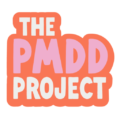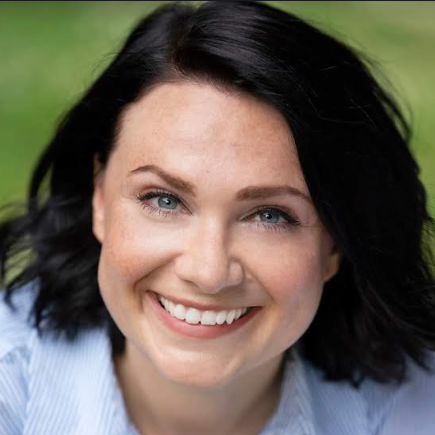Where to start? It’s often one of the harder questions for people with PMDD (premenstrual Dysphoric Disorder) to answer in a succinct way. Do we start with onset of symptoms? Onset of more “noticeable” symptoms? When were the symptoms finally taken seriously by a medical professional? Diagnosis? Treatment? The present and future? As someone with a distinct incapability of making decisions in a timely manner (I’m getting assessed for ADHD; another condition where diagnosis-wise, women seem to get the short straw), I will yet again rely on the timeless wisdom of Julie Andrews and start at the very beginning… Good luck getting the song out of your head.
The very beginning…
I was born in seaside town of Whitley Bay…
*Joking*
So, I guess period education wise, all I really remember is the gender separated classes, maybe two lessons. One about puberty and one about sex and pregnancy. Periods sort of slotted into both classes which, I guess, is why none of is really knew very much about them. We were given turquoise envelopes filled with leaflets, a few sanitary towels and… Yeah, that was pretty much it. I remember being so anxious/excited to have my first period that I asked my mother to bulk buy in advance; the top of my wardrobe crammed with pink and blue packets. When they came along, it was a bit of an anti climax. Compared to my sister, who had intense mood swings and cramping, I seemed to get off rather lightly. Into my teens, I maybe had a few rocky moments, where PMS and alcohol just didn’t mix, and occasionally ran off from my friends in tears. But what teenage girl didn’t do that? Right?
Onset of symptoms
In 2010, I had an Ectopic pregnancy. It was rather late in being diagnosed (a nurse gave me another patient’s HCG results by mistake), so the result meant a Salpingectomy (the removal of a fallopian tube). In 2011 I went to my local (male) GP, as my menstrual cycle still hadn’t returned to normal. I had wondered if, as each month it alternates between which of the ovaries release an egg and only one of my ovaries had a tube to allow it do so, if this could be the cause. My GP’s reaction?
He rummaged around his desk for a piece of A4 paper and a pencil. Proceeded to sketch a rather rudimentary illustration of the female reproductive system complete with two ovaries, two fallopian tubes and uterus.
“This is a normal reproductive system.” He said.
Then the rubbed out the left tube.
“And this is you.”
As useful as the time I told him I was depressed and he informed me that I must be studying Theatre in order to pretend to be someone else (?!?!?).
In 2018, I started to track my periods using an app. I was fed up with being told that my cycles were so irregular due to stress, medication or “syncing with other women.” But even with data to show my GP, nothing changed.
lockdown
In 2020, I had moved into an apartment with my best friend just as Covid hit the UK. We were both working from home and grateful to have such safe and peaceful space, when the world seemed to have become incredibly scary.
Though most of this is a blur now (I think our brains do that in general, to protect us, but brain fog/forgetfulness is most definitely a PMDD symptom that I relate to), what I do remember of that year is… that’s when PMDD kicked my ass.
My periods were still all over the place (three bleeds in a month or nothing for three months) but with the app I was able to identify roughly when it was going to happen via my symptoms. In April 2020, I would start getting extreme migraines and cramps that would last for minutes at a time before releasing. I would cry constantly. That would usually last for 5 -7 days. That phase expanded to 9 days, then 12, then 20.
Not only that, but my previously diagnosed Depression and anxiety disorder has severely deteriorated. During my luteal phase, I wouldn’t just be depressed and anxious, I would be utterly convinced that I was completely alone. No one really liked or loved me, they were all pretending. I would poison everything I touched. I became suicidal. I couldn’t sleep. I couldn’t handle zoom meetings. My beautiful friend would sit with me through all of this. Then watch as, sometimes as soon as the next day, the sun would rise and I would be back to my normal, happy, positive self.
As we can probably all remember, it was nearly impossible to get medical help during the pandemic unless it was Covid or another imminently life-threatening condition. My friend and I tried to get support for me during the worst moments, when I was in so much pain and couldn’t turn off this constant voice in my head, playing an endless loop of “You should probably die.” But as my head wasn’t falling off, I guess it wasn’t seen as an emergency.
I remember one locum GP phone call. He pretty much summed up nearly every other. I explained everything. I repeated everything. He paused, I could hear him typing all of my symptoms into doctor-Google and asked, “Have you ever heard of PMS?” I was 32 at the time. Pillock. He upped my anti-depressants and gave me a number for the Samaritans.
In April 2022, we moved to a house in a different area of Birmingham. Which meant registering with a new GP surgery (thank god). I asked for the female GP. She took on board all of my symptoms and sent off an urgent referral to Gynaecology at Birmingham Women’s Hospital. Though it was a huge relief to be heard, I did not hold out much hope of things ever improving. I was so exhausted.
I remember that car journey to my first consultation at the hospital. My best friend driving, Hamilton soundtrack on (it was rarely off). A hot water bottle tied around my stomach and chain-vaping. I did not believe for a second that this referral would do any good.
But I was wrong.
Diagnosis and treatment
Dr Amir Khan is a friggin saint. Statues should be erected in his honour. Give the dude an OBE. I am officially his biggest fan. If I could remember to do it (brain fog) I’d get a uterus shaped award made just for him.
In that first consultation, Dr Khan changed my life. I cried. I cried not just because I hadn’t slept in days, not because of the depression or pain. I cried because he gave me back a sense of hope that I had learned to live without.
I cannot fully describe just how much it meant to me to have a medical professional (and a man!) listen with empathy and patience. For him to instantly understand the severity of what was happening.
I was diagnosed with acute PMDD and, after much discussion, started treatment that day.
The plan was to come into hospital every month for a Prostap injection. This injection (which is still a bit of a bitch, even now), brings about a temporary chemical menopause. I.e. my ovaries basically go to sleep, and I just have to deal with
whatever menopausal symptoms I would get later on in life anyway.
After 6 months, I would start HRT (hormone replacement therapy) and daily vitamin D intake. The HRT would gradually start to wake up my ovaries; the key being that we would have to make tweaks on an ongoing basis in order to gauge the correct dosage/how “awake” my ovaries can be before PMDD symptoms returned. The Vitamin D would be to support bone density, which is affected by the treatment. Annual bone density scans too (which was fun when I was recently on crutches after an RTA).
Those first six months were kind of heaven for me. Ok, the insomnia continued but mostly because of night sweats. Hot flushes are REAL. But I felt more like me again, and for longer stretches of time.
now
I have been on treatment now for three-ish years. I’d love to say it’s all been smooth sailing, but that’s just not the nature of PMDD. Things are still drastically better, for example: I still have some migraines and occasional hot flushes (mostly when I am nearly due for a Prostap injection). I have, in the last year had two severe dips where suicidal ideation pretty much took over: resulting in one hospital admission and a near attempt.
Luckily, I have now got support from my community Mental Health team (who are fab), as well as friends and family who know about the condition. Mr Khan and his team in the Gynae Ward continue to be my heroes and monitor me closely.
I am reapplying for PIP (Personal Independence Payments). I applied after an accident in 2022 and discussed PMDD with them at the time, but the board panel members just did not understand the condition or how debilitating it is.
FUTURE
I have come to the decision that I am going to have some of my eggs frozen and opt for a full hysterectomy. I am on the waiting list for my first consultation with the surgeon who will perform the procedure. It’s not an easy decision to make by any means, even though I have always been keen to foster or adopt (as I was also in foster care).
I hate that this condition has taken away so many choices in the past, so I am making this one for myself. Knowing now just how sensitive I am to any small hormonal change; I know it wouldn’t be safe or responsible for me to have a child naturally.
I am coming to terms with it. Having a dog helps.
PMDD is still scandalously under researched. Women are still not being heard/ their pain dismissed. How many more women have to go through this, or worse, “choose” to end their lives so they don’t have to?
I believe that now more information is available to us, it should be shared in schools and local communities. ALL medical professionals should be briefed about the condition and its severity, GPs, Pharmacists, Paramedics, Mental Health Crisis teams etc.
For now, I am going to focus on my future. Knowing I am privileged to have one.



